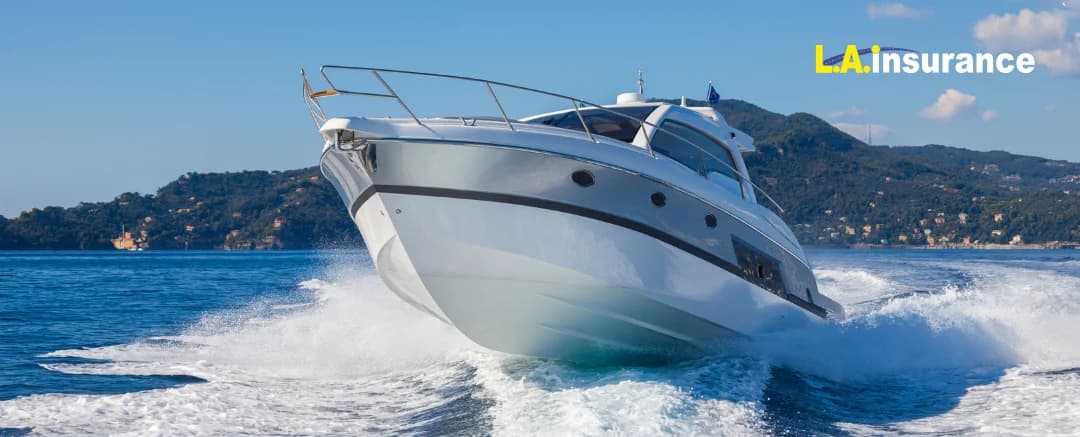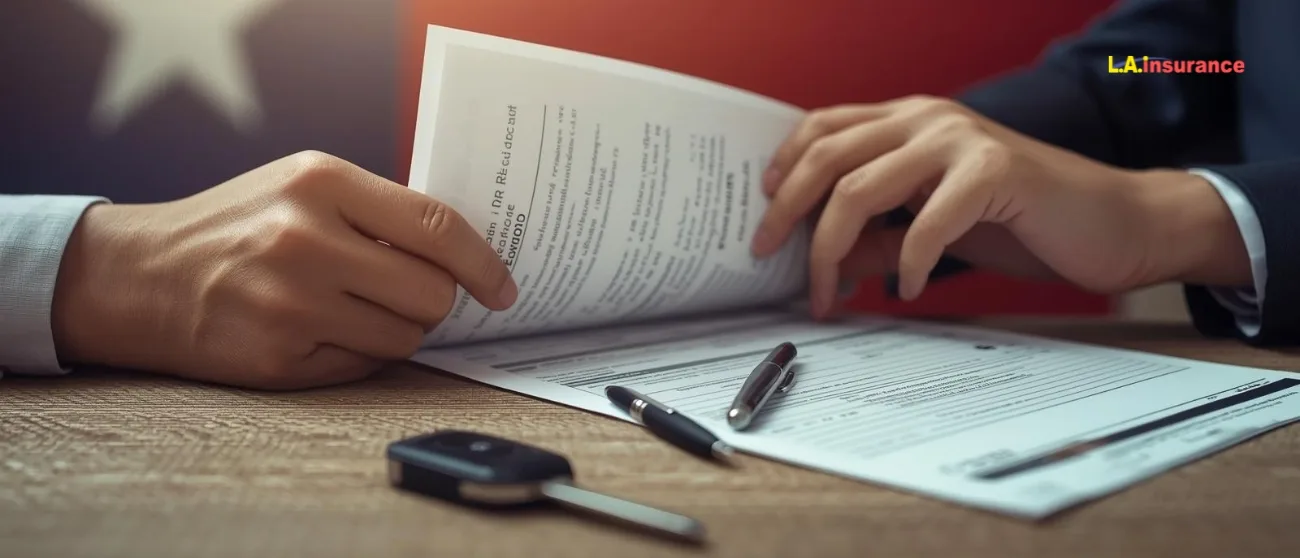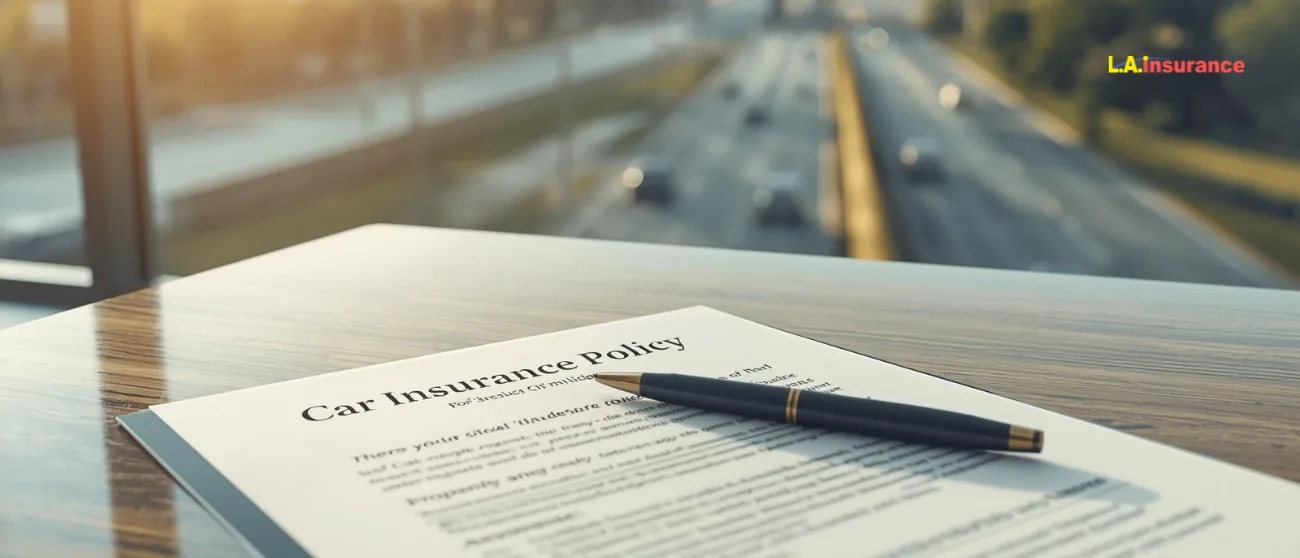
Publish Date: 17-08-2025
Boat & Watercraft Insurance
Last Updated: 15-12-2025
How Much Experience Do You Need for Boat Insurance?
When it comes to acquiring boat insurance, experience is often a key factor. If you don’t have adequate boating experience, you may face difficulties finding a suitable policy or may face higher premiums.
But do you really need experience to get boat insurance? If so, what exactly counts as boating experience, and why does it matter? This article answers all these questions and offers practical tips even if you're a first-time boater.
Do You Need Experience to Get Boat Insurance?
While some insurers often ask for experience, this isn’t a strict requirement. You can even purchase boat insurance with absolutely zero boating experience. However, the lack of experience raises concerns over higher chances of accidents and insurance claims.
This is the reason why you may face increased premiums, especially for having little experience sailing or captaining a boat. Some insurers may even offer limited coverage or exclude certain vessels, such as high-performance speedboats, due to a lack of experience.
So, the direct answer is no, experience isn’t mandatory, but it does work in your favor. Insurers tend to prefer experienced boaters and often reward them with lower rates, broader coverage options, bundle plans, and exclusive discounts.
Searching for a reliable insurance agency that offers affordable boat insurance and watercraft insurance coverage regardless of experience? You should consider exploring L.A. Insurance’s wide range of insurance solutions available across several U.S. States, including Michigan, Colorado, Florida, Arizona, Georgia, Nevada, and Texas.
What Counts as Boating Experience to Get Insured?
Another important question here is, what counts as boating experience to get insured? Whether you’ve any boating experience or not, it’s essential to know what exactly insurers consider as experience.
Typically, insurers would like to know how much time you spent boating, vessels you’ve sailed, previous boat insurance policies you’ve held (if any), the number of accidents or insurance claims, waters you’ve navigated, and whether you’ve certification for any boating safety course. If you’re not familiar with these factors, here’s a breakdown to give you a clearer picture of what qualifies as real boating experience in the eyes of insurers.
Duration of Boating Experience
Insurers evaluate your likelihood of insurance claims based on the amount of time you’ve spent piloting your own boat, chartering, or even operating small boats like jet skis. Your duration of boating experience is mainly evaluated to determine how skilled you are at safely operating a vessel.
So, as the rule of thumb, the more time you’ve spent operating a boat, the more experienced you are, which significantly reduces the chance of accidents and, more importantly, the likelihood of insurance claims.
Vessels You’ve Sailed
The experience of cruising a jet ski isn’t the same as operating a cabin cruiser or yacht. So, another part of evaluating your boating experience is to examine the vessels you’ve sailed and to what extent.
Let's say you have 3 years of experience operating small boats like jet skis, dinghies, or pontoons, but you’re seeking insurance for a yacht. There’s a high chance that you would be charged a higher premium for the yacht because you’ve little or no experience operating a yacht, or similar larger boats.
The operating mechanism of sailing large boats like a yacht is entirely different compared to a small boat like a jet ski. So, that’s why you would have a better scope of securing lower premiums for smaller boats compared to large ones.
In general, the more closely your past boating experience matches the type of boat you're insuring, the more favorable your premium and coverage options will be, especially with smaller, less complex boats.
Former Boat Insurance (if any)
If you have held any boat insurance policy in the past, that itself adds a significant qualifying experience to get a new one. In this case, it will be easier to renew your boat insurance policy with your former insurer if they didn’t terminate your policy due to certain violations or non-payment.
On the other hand, if you haven’t violated any terms and conditions of your previous boat insurance policy, and you cancelled it simply because you didn’t need it anymore, you can either approach your former insurer or start over with a new agency.
Here’s the catch, if you have been uninsured for a certain time, whether it's been a few days, weeks, months, or even years, you may be charged with higher premiums due to what's called a policy lapse. So, if you own a boat and cruise it regularly or even occasionally, it’s essential to have an active boat insurance policy.
However, if you didn’t have any policy lapse, and you’re immediately renewing policies or switching to a new provider, then it will be treated as an added advantage, especially if you haven’t made any claims with your former insurer. This shows that you were responsible, and you stayed insured as you’re financially aware, both of which are plus points for insurers.
Number of Accidents, or Insurance Claims
Typically, the main concern of insurers is how frequently you may get involved in an accident and the number of insurance claims you may file. The more insurance claims you make, the more they will have to compensate you up to your coverage limit as long as the claim is valid.
So, when it comes to boating experience, every insurance company will ask you and verify whether you have had any boat accidents and if you have made any insurance claims, mainly within the past 3 years.
If you’ve had multiple incidents or claim payouts, expect to pay higher premiums. You may also miss out on certain perks like discounts, bundle pricing, or extended coverage options. On the other hand, a clean insurance claims history often helps you qualify for better rates and policy features.
Waters You’ve Navigated (Lakes, Rivers, Offshore, etc.)
Another crucial aspect of your boating experience includes the water bodies where you have sailed, such as lakes, rivers, the sea, or the vast ocean. Each of these water bodies has different levels of water currents, tides, and environmental conditions.
For example, lakes typically offer calm and predictable conditions, while rivers involve stronger currents and potential hazards. Offshore or ocean boating, on the other hand, presents significantly higher risks due to waves, tides, and limited access to emergency services.
Insurers consider your experience in the type of waters you intend to navigate. If you’ve logged substantial hours operating vessels in similar environments, you’re more likely to qualify for lower premiums. However, if you lack experience in the waters where you plan to boat, you may face higher rates or limited coverage options.
Training or Boating Safety Courses
In addition to hands-on boating experience, completing a recognized training program or boating safety course also strengthens your qualifications. These courses teach essential skills such as safe navigation, emergency response, and responsible boating practices.
If you’ve completed a boating safety course certified by a nationally recognized organization like the U.S. Coast Guard, BoatUS, or NASBLA, it can significantly improve your chances of qualifying for boat insurance. In many cases, it can even help you secure lower premiums, discounts, or bundle deals.
Earning a safety certification also demonstrates your commitment to responsible boating, which adds valuable credibility to your insurance application.
Why Does Experience Matter for Getting Boat Insurance?
Remember, you can get boat insurance even without boating experience. There aren’t any strict rules or experience-based eligibility criteria to purchase boat insurance. However, as insurers approve applications and determine insurance rates by evaluating your overall boating experience, that’s why it matters.
So, the more experience you have, the more favorable your terms are likely to be, especially when it comes to insurance premiums and exclusive offers.
How Does Experience Affect Your Boat Insurance Policy?
Typically, your experience can significantly affect your boat insurance premiums. The table below shows how experience can affect your policy, particularly your boat insurance rate.
Experience Level | Effect on Boat Insurance |
0–1 years | Higher premiums; may need to complete safety course. |
1–5 years | Moderate premiums; safer if no prior claims. |
5+ years | Lower premiums; eligible for discounts. |
Certified Course Completion | Often earns discounts and improves insurability. |
Tips for First-Time Boaters
If you’re new to boating and you’re struggling to purchase boat insurance policies at an affordable rate, here’s what you should do.
- Take a boating safety course: Once you complete the course, you will be certified. It will prove that you have hands-on experience operating a boat safely, which adds credibility to your application and shows how concerned you are when it comes to upholding your responsibility.
- Improve Your Boating Skills: Cruise your boat on safe waters to develop adequate boating skills. In this way, you can add hours, days, weeks, or months of sailing experience.
- Hire an Experienced Captain: If you’ve the budget, you can hire an experienced boat captain to pilot your water vessel. In fact, some insurers may require it, especially if you don’t have any experience at all.
- Ensure Proper Boat Maintenance: Insurance policies typically don’t cover damage caused by wear and tear. Performing regular maintenance not only protects your investment but also helps avoid claim denials due to poor upkeep.
- Join a Boating Club: By being part of a boating club, you can participate in activities, training programs, and even get certified. Some clubs have affiliations with insurance agencies, so you may even get a recommendation from the club that may come with discounts and exclusive offers.
- Avoid Risky Boating Activities: Avoid racing or recklessly speeding your boat. Reckless sailing is a direct policy violation; this can immediately dissolve any existing boat insurance policy and make it difficult for you to obtain one in the future.
- Search Around: While some insurers may ask for experience, there are many that have boat insurance policies even for beginners. So, all you need to do is search and find reliable insurance agencies that do.
Also, when you show interest in purchasing boat insurance, it automatically builds an impression that you’re financially concerned. Why wouldn't you be? Boats are prone to sinking, especially in the event of an accident, so it’s essential to ensure proper financial protection to cover sinking. Apart from that, if you’re renting a boat, some marinas will ask for proof of insurance.
If you’re a first-time boater, you may not have sufficient experience sailing a boat. This means there’s an essential need for financial protection whether you own the boat or have rented it.
The Bottom Line: You Don’t Need Experience to Get Boat Insurance
If you have read this far, you already know that you don’t need any experience to get boat insurance. However, if you have adequate boating experience, especially with a clean track record and no insurance claims in recent years, it can work as a strong plus point in your favor.
These added benefits mainly include access to lower premiums, exclusive coverage options, bundle offers, and more. If you’re located in Michigan, and if you’re looking for an insurance agency that offers boat insurance at affordable rates regardless of experience, you should contact us or find an insurance agent at your nearest location.
Whether you’re new to boating, or you have some experience our insurance agent will listen to your requirements, answer your questions, and provide suggestions so that you can purchase the right boat insurance policy within your budget.
Frequently Asked Questions (FAQ)
Is it hard to get boat insurance without any boating or sailing experience?
Not necessarily, but it can be somewhat challenging to find boat insurance at a reasonable rate if you don’t have any experience. You may also miss out on discounts, bundle plans, and other exclusive offers that are typically available to experienced boaters.
Why do insurers care about boating experience?
Boating experience helps insurers assess how likely you are to file a claim. More experience typically means fewer risks, which can lead to lower premiums and better coverage options.
Can hiring a captain help me get insured?
Yes, if you lack boating experience, hiring a licensed and experienced captain is a smart move. It can increase your chances of getting approved for boat insurance and may even help you qualify for discounts or additional coverage options.
Editorial Disclaimer
The information provided on this blog is for general informational purposes only and does not constitute professional insurance, legal, or financial advice. Coverage and rates are subject to individual eligibility, underwriting guidelines, and state availability. For specific questions regarding your policy or to get an accurate quote, please contact a licensed L.A. Insurance agent directly. We're an independent agency and not a direct insurance carrier. For more information on how we operate and handle your data, please see our Terms and Conditions and Privacy Policy.
Tag :
Boat & Watercraft
boat insurance








